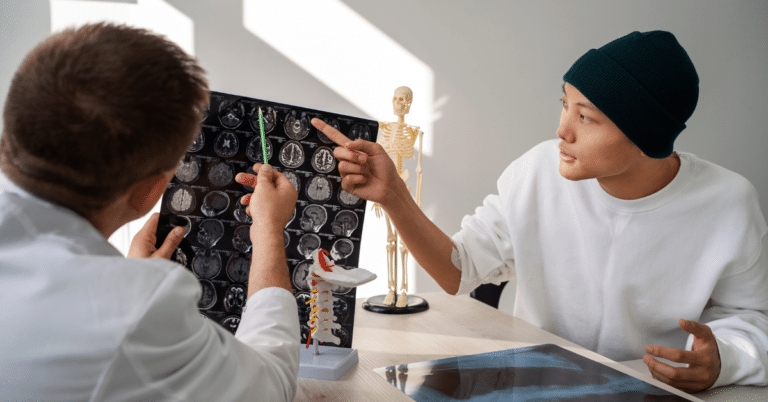4 min read
Neurological Innovations: the next frontier in patient care

In the ever-evolving landscape of healthcare, neurological innovations stand out as a beacon of hope and progress. With advancements in technology and growing understanding of the complexities of the human brain, the future of patient care is being transformed. From improving diagnostics to revolutionizing treatment methods, neurological innovations are at the forefront of enhancing the quality of care for patients worldwide.
Revolutionizing the care of patients
The care of a patient has always been the cornerstone of healthcare, and neurological innovations are taking it to new heights. By harnessing the power of technology, healthcare providers can now offer more personalized and effective treatment plans tailored to each patient’s unique needs.
Whether it’s through advanced imaging techniques, minimally invasive procedures, or groundbreaking therapies, the focus is squarely on improving patient outcomes and quality of life.
Improving patient care through technology
One of the most significant ways in which neurological innovations are impacting patient care is through the use of technology. From wearable devices that enable remote consultations, technology is bridging the gap between patients and healthcare providers like never before.
This not only allows for more timely interventions but also empowers patients to take a more active role in managing their health.
The future of healthcare: where innovation meets patient care
As we look ahead, the future of healthcare is undeniably intertwined with innovation and technological advancement. The integration of artificial intelligence, machine learning, and big data analytics holds the promise of revolutionizing how diseases are diagnosed, treated, and managed.
From predictive analytics that can identify at- risk patients before symptoms manifest to personalized treatment plans based on genetic markers, the possibilities are endless.
Clinic innovation: a revolution in patient care
Clinical innovation is driving a revolution in patient care, particularly in the field of neurology. From novel drug therapies to cutting-edge surgical techniques, researchers and clinicians are constantly pushing the boundaries of what is possible. This relentless pursuit of innovation is not only improving outcomes for patients with neurological disorders, but also shaping the future for healthcare as a whole.
Embracing a future focused on innovation
Innovation or technological advancement that impacts patient care is the driving force behind the healthcare landscape of tomorrow. By embracing new technologies, fostering collaboration between researchers and clinicians, and prioritizing patient – centered care, we can build a future where neurological disorders are better understood, more effectively treated, and ultimately cured.
Current challenges in patient care
Providing optimal care for patients with neurological conditions presents various challenges. Limited access to specialize care in rural or underserved areas, long wait times for appointments with neurologists, and disparities in healthcare access based on socioeconomic factors are some of the hurdles patients may face.
Addressing these challenges requires innovative solutions that prioritize equitable access to high – quality care for all individuals.
Patient-centered care models
Patient – centered care models emphasize collaboration between patients and healthcare providers, empowering patient to actively participate in decisions about their treatment. Shared decision – making, where patients and providers work together to develop treatment plans that align with the patient’s values and preferences, promotes patient autonomy and improves treatment adherence.
Telehealth and remote monitoring
Telehealth and remote monitoring technologies have revolutionized healthcare delivery, particularly in the field of neurology. Virtual consultations enable patients to access care from the comfort of their homes, reducing travel time and expenses.
Remote monitoring devices, such as wearable sensors and mobile apps, allow healthcare providers to track patients’ vital signs, medication adherence, and disease progression remotely, facilitating early intervention and personalized care.
Precision medicine in neurology
Precision medicine leverages advances in genetics, biomarker research, and molecular diagnostics to tailor treatment strategies to individual patients’ genetic makeup, lifestyle, and environment factors. By identifying biomarkers associated with specific neurological disorders, healthcare providers can predict disease risk, customize treatment plans, and optimize therapeutic outcomes.
Ethical considerations
As healthcare becomes increasingly digitalized and reliant on technology, ethical considerations surrounding patient privacy, data security, and equity of access become paramount. Healthcare organizations must implement robust data protection measures to safeguard patient information and ensure compliance with privacy regulations.
Additionally, efforts to address disparities in access to healthcare services must be prioritized to ensure that all patients, regardless of socioeconomic status or geographic location, have equitable access to innovative treatments and technologies.
Patient education and empowerment
Educating patients about their neurological conditions, treatment options, and self-management strategies is essential for promoting patient empowerment and improving health outcomes. Patient education initiatives, such as online resources, support groups, and educational workshops, provide patients with the knowledge and skills they need to actively participate in their care and make informed decisions about their health.
Collaboration and knowledge sharing
Collaboration among stakeholders in the healthcare ecosystem, including healthcare providers, researchers, policymakers, and patient advocacy groups, is critical for advancing neurological care and driving innovation. By sharing knowledge, resources, and best practices, stakeholders can accelerate the pace of discovery, promote interdisciplinary research, and translate scientific advancements into real-world solutions that benefit patients.
Pioneering the future of patient care
Neurological innovations are paving the way for a new era in patient care. From leveraging technology to improve diagnostics and treatment to embracing cutting-edge therapies and techniques, the future of healthcare is brighter than ever. By continuing to invest in research, support innovation, and prioritize the needs of patients, we can ensure that neurological disorders are met with compression, understanding, and effective solutions. Together, we are pioneering the future of patient care – one innovation at a time.